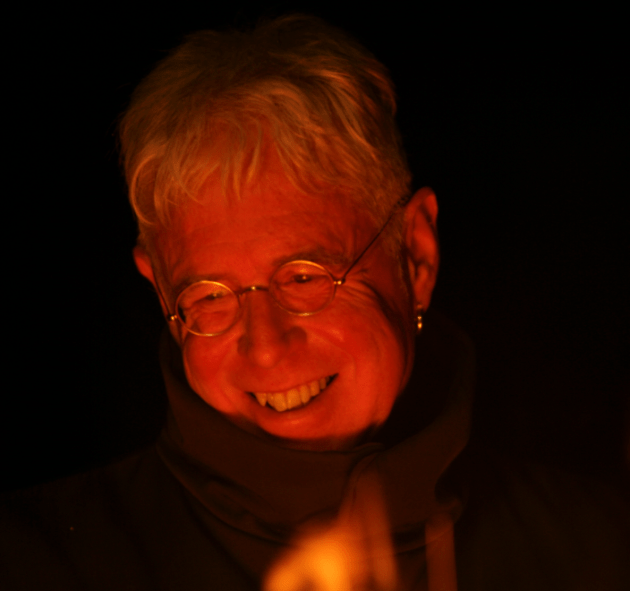Bruce Cockburn has steadily, not always quietly, blazed a trail of stellar albums over the course of four decades. Unlike other Canadian musicians who headed south (Neil, Joni, most of the Band, et al), he has kept his roots firmly planted north of the border. Last year’s documentary Pacing The Cage set the stage for his autobiography. It is a well-written description of a man struggling to balance his faith in God with the horrors he finds in the world.
Most tellingly, he is shocked and confused after a visit to Guatemala during US sponsored terrorism against Mayan farmers. His catharsis is writing “If I Had a Rocket Launcher.” Coming after a string of albums where Cockburn’s Christianity is neither overt nor buried, many fans are thrown off balance.
 Cockburn tells his tale chronologically, with an upbringing that was loving but not expressive. He would trace his subsequent relationship issues back to his family interactions.
Cockburn tells his tale chronologically, with an upbringing that was loving but not expressive. He would trace his subsequent relationship issues back to his family interactions.
He mentions often his manager of four decades Bernie Finkelstein, which parallels the only other similarly long-lived business relationship in the music industry, that between Neil Young and Elliott Roberts. Whereas Neil and Roberts talk every day, Cockburn prefers to hear as little as possible about the business and hence never calls Bernie.
There are several spellbinding pages describing when Hendrix plays Montreal and Coburn’s psychedelic band is the opener. At the after show party Cockburn finds himself standing next to the recently arrived Hendrix. Hendrix expresses boredom with the party; all he wants to do is play music and so invites anyone up to jam. Coburn’s lack of confidence has him leaving the venue, and with it a great chance for a priceless story.
 His move to a solo career is detailed, along with the strange phenomenon of growing popularity. He would often take off with his wife for a lengthy camping trip after release of an album, with no awareness of its success or failure. On one occasion he found himself wandering from shop to shop in Toronto, realizing his album was being played nonstop on the venerable CHUM FM radio station.
His move to a solo career is detailed, along with the strange phenomenon of growing popularity. He would often take off with his wife for a lengthy camping trip after release of an album, with no awareness of its success or failure. On one occasion he found himself wandering from shop to shop in Toronto, realizing his album was being played nonstop on the venerable CHUM FM radio station.
When assessing Cockburn’s best songs, it seems they emerge from the most dire of circumstances. Even the quotidian “Dust and Diesel” or lilting “Bullet in Peggy’s Kitchen Wall” evidence his keen observations of such circumstances.
Cockburn’s wanderlust often took him abroad, usually for up close and personal visits to war torn regions, exposing him to all levels of detail. He blithely admits to admiring an AK-47 assault rifle held by a soldier, who tossed it to him. “I caught it, held it, liked it.” Cockburn later bought one. I wonder if Ted Nugent will ever read this book, if so he will at least like one paragraph.
Cockburn eventually travelled to Nicaragua and witnessed further US-supported terrorism by the entrenched regime against its citizens. Stunned at the latter’s resilience he pens “Waiting for a Miracle.”
Invariably, Cockburn unloads his views on an alphabet soup of organizations: IMF, GATT, G8, WTO. Tipper Gore’s PMRC also gets a worthy scathing. President Reagan supplied advisors and arms to the dictators in Central America, who in turn shipped cocaine to the USA. The contemporaneous war on drugs was a failure in every respect, quintupling the U.S. prison population from 500,000 to 2.5 million. Cockburn notes the prison-industrial complex did well.
His autobiography is an informative look into the mind of an articulate chronicler of life in a complex age. Any admirer of Cockburn’s deep and rich songbook will appreciate the backstory.
(Harper One, 544 pages)
Bruce Cockburn soon plays three shows in California, any of which will be brilliant:
| Fri 07/24/15 | The Coach House Concert Hall | San Juan Capistrano, CA |
| Sat 07/25/15 | Levitt Pavilion | Los Angeles, CA |
| Sun 07/26/15 | Belly Up Tavern | Solana Beach, CA |




Recent Comments